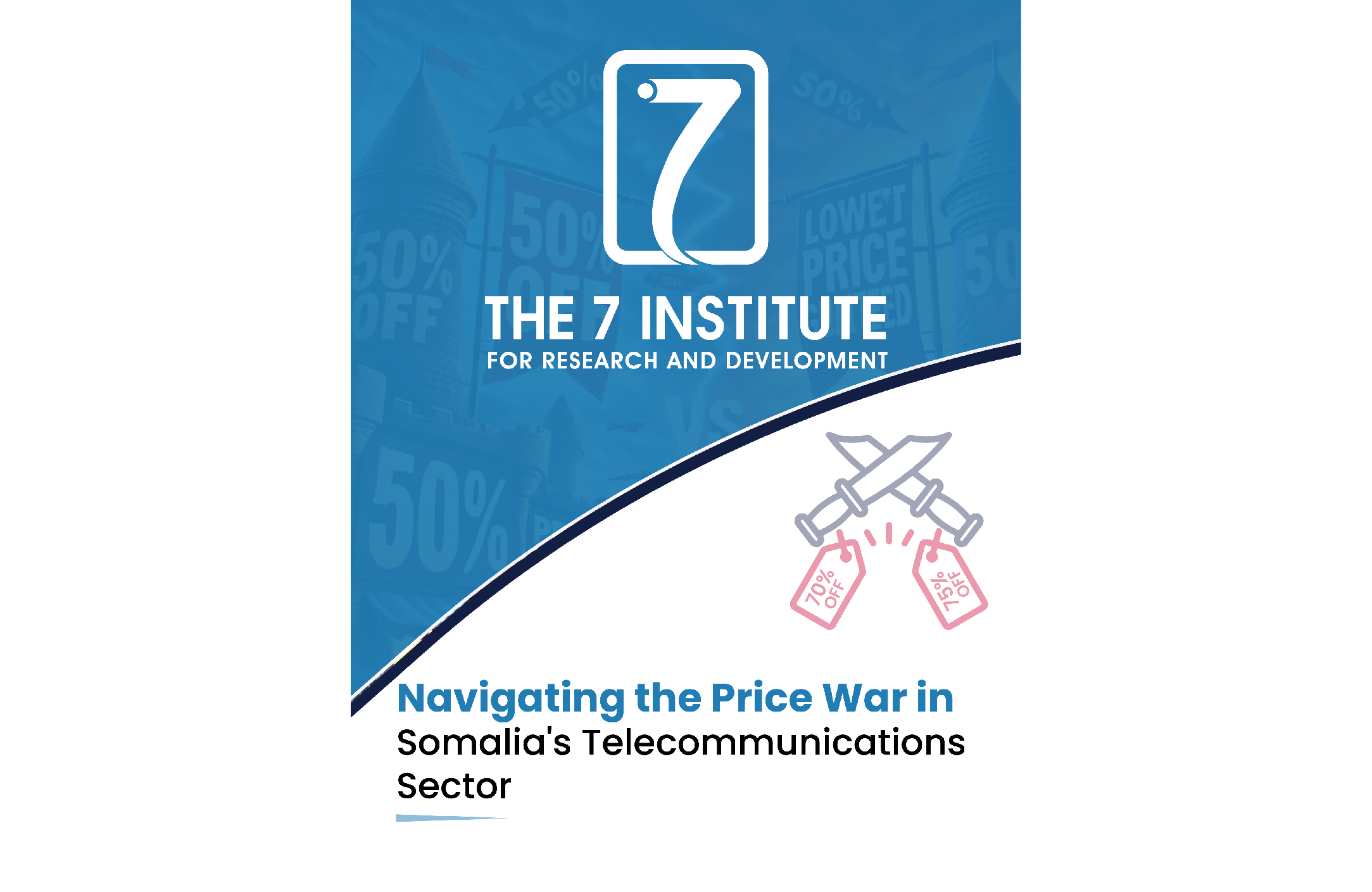
The telecommunications price war in Somalia is driven by several factors, primarily the homogeneous nature of internet services, market saturation, technological advancements, and high consumer price sensitivity. Key players like Hormuud, Somtel, and SomNet have aggressively reduced prices to capture or retain market share. These changes benefit consumers in the short term by increasing affordability and accessibility. However, they pose risks to market sustainability, including reduced profitability, underinvestment in infrastructure, and potential market consolidation that could harm competition and innovation. The findings showed that while mobile phone users are highly price-sensitive in taking advantage of cost reductions, office and home internet users are generally less affected by the price war. These users prioritize stability and consistency over fleeting price discounts due to higher switching costs and dependency on reliable services. This segmentation has provided some financial stability to telecom firms amidst intense competition in the mobile market. The telecommunications price war in Somalia threatens the sustainability of mobile money services, which currently serve as a critical lifeline for over 70% of the population due to the limited reach of formal banking institutions. While these services have traditionally been offered free, enabling financial inclusion and facilitating daily transactions, remittances, and commerce, the possibility of telecom firms introducing fees to recover losses could have profound socio-economic implications. Charging for mobile money transactions risks reducing usage, particularly among rural and low-income communities, potentially reversing gains in financial inclusion and stalling economic activities in informal markets.

